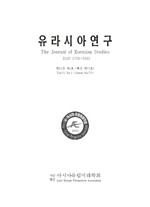- 영문명
- A Study on “Private-Governmental Interaction” in Chinese Social Economy
- 발행기관
- 아시아.유럽미래학회
- 저자명
- 이장원(Jangwon Lee) 전가림(Kalim Chun)
- 간행물 정보
- 『유라시아연구』제11권 제2호, 103~121쪽, 전체 19쪽
- 주제분류
- 사회과학 > 사회과학일반
- 파일형태
- 발행일자
- 2014.06.30
5,080원
구매일시로부터 72시간 이내에 다운로드 가능합니다.
이 학술논문 정보는 (주)교보문고와 각 발행기관 사이에 저작물 이용 계약이 체결된 것으로, 교보문고를 통해 제공되고 있습니다.

국문 초록
중국의 시민사회영역에 대한 관심이 등장한지도 이미 20여 년이 넘었다. 중국시민사회에 대한 관심은 개혁개방의 심화, 천안문 사건, 소련 및 동구 사회주의권의 붕괴와 같은 1980년대-1990년대 초의 국내외적 격변을 배경으로 등장해 서구 시민사회 개념의 적용, 중국 시민사회의 존재와 발전 가능성 등에 관한 논쟁을 필두로 시민사회단체의 구체적인 활동과 사회적 기능, 활동방식 등을 대상으로 하는 경험적, 실증적인 관심으로까지 확대되어 왔다. 그런데, 중국 시민사회가 최근 나타내고 있는 일련의 변화가 흥미롭다. 즉 그동안 중국의 시민사회를 구성하는 주요 행위체들은 대체로 비정부기구(非政府組織), 비영리기구(非營利組織), 비영리섹터(非營利部門), 제3섹터(第三領域), 민간조직(民間組織) 등의 용어로 불리어 왔고, 중국의 현행 법률체계에서는 이들을 사회단체(社會團體), 민영비기업단위(民辦非企業單位), 기금회(基金會)로 구분해 왔다. 이 같은 기존의 용어 외에 최근 들어 ‘사회적 경제’, ‘사회적 기업’이라는 명칭이 새롭게 추가되고 있는 것이다. 물론 아직까지 중국에서는 시민사회 행위체들을 지칭하는 기존의 용어들 외에 ‘사회적 경제(Social Economy)’ 또는 ‘사회적 기업(Social Enterprise: SE)’이라는 용어가 생소하지만, 학계와 시민사회, 그리고 정부조직을 중심으로 빠르게 확산되고 있는 것으로 보인다. ‘사회적 경제’와 ‘사회적 기업’이라는 용어가 중국에서 확산되고 있는 배경은 어디에 있을까? 중국 정부가 시민사회를 또 다른 시각에서 대하고 있는 변화에 주목할 필요가 있다. 특히 시민사회의 사회적 역할 확대에 대해서는 정부의 주도적 역할과 사회(민간) 참여의 상호 결합을 통한 거버넌스의 개념으로 인식하고 있는 것으로 보인다. 정부 입장에서는 정부와 시장의 역할을 보완해 줄 수 있는 사회공익서비스의 창출이라는 측면에서 시민사회와의 협력적 거버넌스가 대단히 매력적인 대안이 될 수 있다. 따라서 ‘비영리기구’와 ‘제3섹터’를 중심으로 사회적 역량과 정부와의 협업을 강조하는 거버넌스 차원의 ‘사회적 기업’과 ‘사회적 경제’ 개념이 상대적으로 용이하게 수용될 수 있을 것이다. 또한 중국의 시민사회는 이 같은 위로부터의 변화를 나름대로의 자생력을 확보할 수 있는 기회로 간주하며 그들의 공익적 역할과 색채가 보다 선명하게 드러날 수 있는 ‘사회적 경제’와 ‘사회적 기업’으로의 변태(變態)를 추구하고 있는 것으로 보인다. 본 논문은 중국에서의 ‘사회적 경제’, ‘사회적 기업’ 개념을 설명하고, 중국의 사회적 경제 영역에서의 협력적 거버넌스 구축을 향한 민・관(民・官)의 상호작용 고찰을 목적으로 한다.
영문 초록
Over the past few decades, the concern for civil society of China has emerged at home and outside. It has become theoretical and empirical interests in the backdrop of national and international turbulence, such as China’s reform and opening up, Tiananmen incident, the collapse of the Soviet Union and Eastern Europe in 1980s and early 1990s. It has also expanded to include applying the concept of western civil society to China, argument for the existence and possibility of Chinese civil society, and detailed activities and social function of civil society actors. By the way, there is something new in Chinese civil society. In the past, while Chinese civil society actors are referred to as NGOs, NPOs, Non-profit sector, or private organizations, etc., current Chinese regulations define them as ‘Social Organizations’, ‘People-Run Non-Enterprise Units’, or ‘Foundation’. In addition, the term ‘Social Economy’ and ‘Social Enterprise’ are added to the definitions lately. While the ‘Social Economy’ and ‘Social Enterprise’ have been around for several decades in some countries, it is a new concept in China. It has only just begun to emerge since the mid of 2000s. Nevertheless, the term ‘Social Economy’ and ‘Social Enterprise’ have spreaded rapidly over the academic communities, civil society, and governmental organizations in China over the past few years. What is the background of spread of the term ‘Social Economy’ and ‘Social Enterprise’ in China? For this, firstly, Chinese government’s new understanding on the civil society is noteworthy. The Chinese government seems to expand the social role of civil society as a governance by combining the government-led and private sector-participated. From the government’s standpoint, collaborative governance with the civil society is a very attractive alternative for the economic and social development because the government-private sector partnership may complement the lack of government and market to create public service. Therefore, the government may accept easily the concept of ‘Social Economy’ and ‘Social Enterprise’ as a governance by the collaboration between government and private sector. On the contrary, such changes from the top-bottom level will help the Chinese civil society enhance their social participating ability and survival capacity. That’s why many Chinese civil society actors are seeking for transformation toward ‘Social Economy’ and ‘Social Enterprise’. Indeed, ‘Social Economy’ and ‘Social Enterprise’ in China are being shaped by the strategic cooperative framing between private sector and the government. This paper interprets the concept of ‘Social Economy’ and ‘Social Enterprise’ in China, and examines private-governmental interaction toward the collaborative governance in Chinese Social Economy.
목차
Ⅰ. 서 론
Ⅱ. 중국의 사회적 경제
Ⅲ. 사회적 경제 영역에서의 중국 민 관(民官)의 상호작용
Ⅳ. 결 론
참고문헌
해당간행물 수록 논문
- 1914 vs. 2014: 2014년 동아시아는 1914년 유럽의 재현인가?
- Korean Literature between East Asia and Europe
- 유네스코 창조도시 연구 - 유럽문화수도와 고베의 사례를 중심으로
- 중국식 과두 체제의 변화?: 엘리트 정치 측면에서의 시진핑 집권 초기 평가
- 한-아세안 관광협력의 지속가능성 제고 방안: 교육연수 협력 프로그램을 중심으로
- 중국 ‘사회적 경제’의 민・관(民・官) 상호작용에 관한 연구
- Taking the Long Way Home: Europhilia and Cosmopolitanism as a Critique of Tradition in Yi Hyoseok’s Literature
참고문헌
관련논문
사회과학 > 사회과학일반분야 BEST
- AI와 디지털 문화 산업의 결합에서 저작권 및 윤리적 규범 준수의 필요성 연구
- 종합병원 간호사의 환자안전문화인식과 조직의사소통만족이 안전간호활동에 미치는 영향
- 임상간호사의 환자안전간호활동에 영향을 미치는 요인
사회과학 > 사회과학일반분야 NEW
더보기최근 이용한 논문
교보eBook 첫 방문을 환영 합니다!

신규가입 혜택 지급이 완료 되었습니다.
바로 사용 가능한 교보e캐시 1,000원 (유효기간 7일)
지금 바로 교보eBook의 다양한 콘텐츠를 이용해 보세요!




